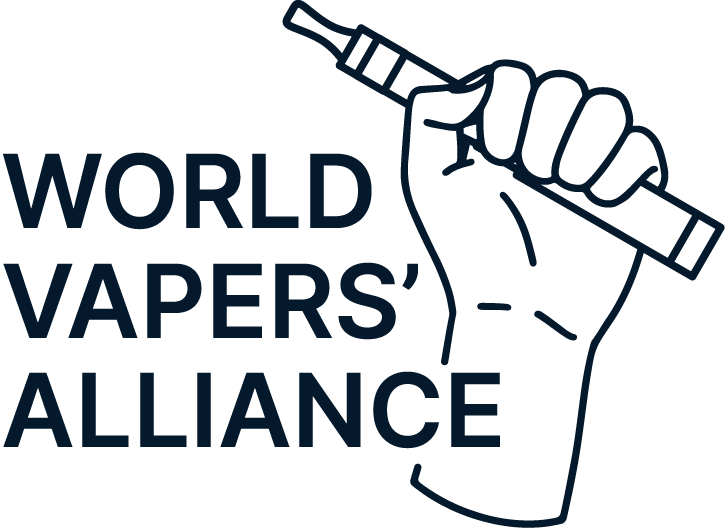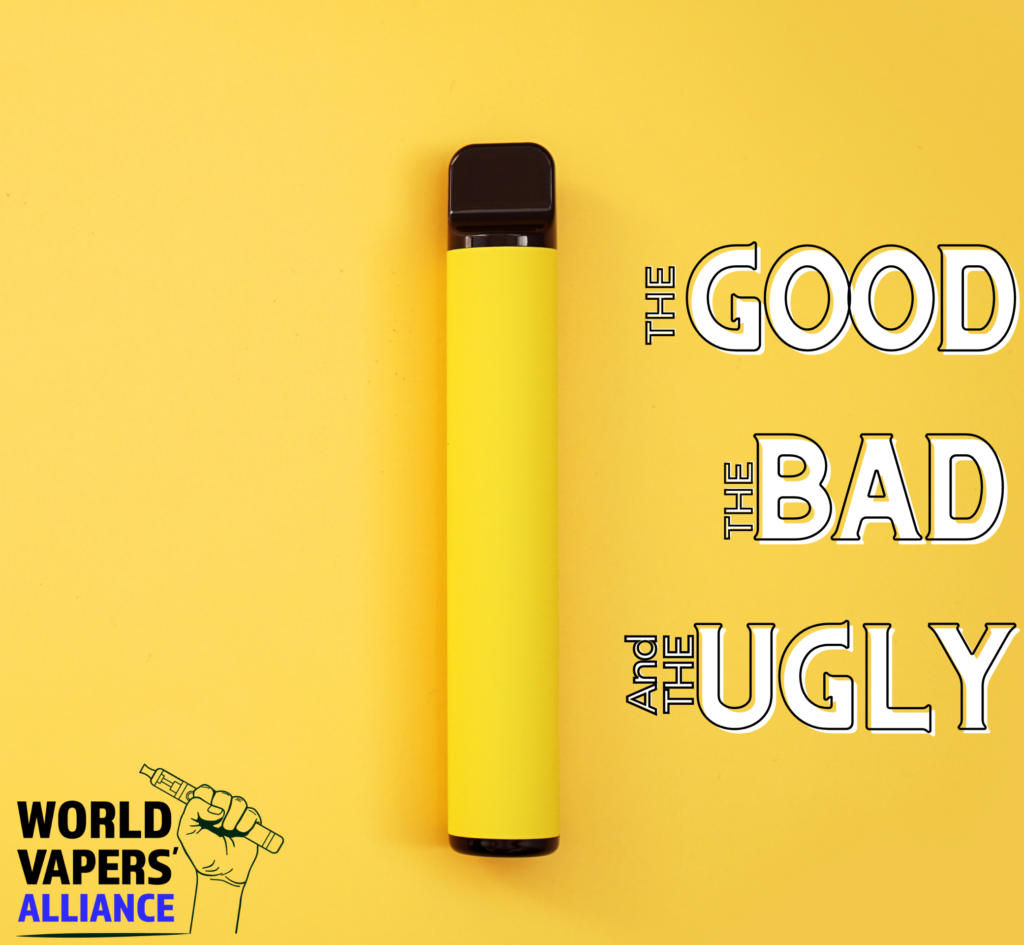Jednorázové vaporizéry jsou ožehavým tématem ve vapingové komunitě a stále častěji i v politických debatách. Německo již diskutuje o úplném zákazu jednorázových návleků a plánuje prosazovat zákaz v celé EU. Minulý týden jsem spustil anketu na Twitteru, abych získal představu o tom, co si o jednorázových návlecích myslí vapingová komunita. Samozřejmě se nejedná o reprezentativní průzkum, ale dává nám dobrou představu o obecném sentimentu. Vidíme rozdělené hlasování, přičemž 361 tis. respondentů si myslí, že jednorázové návleky jsou obecně dobrá věc, a 441 tis. respondentů hodnotí dopad jednorázových návleků celkově jako nepříznivý.
Hej 1TP6Vapování přátelé! Rychlá otázka:
Jaký je váš názor na jednorázové vaporizéry obecně?
Důvody pro váš hlas jsou vítány níže!
— Michael Landl (@LandlMichael) 10. ledna 2023
Je zřejmé, že možnosti ankety jsou zjednodušené, ale vyvolaly zajímavou diskusi o výhodách a nevýhodách jednorázových vložek. Níže jsem shrnul hlavní argumenty pro a proti jednorázovým vložkám.
Dobro:
Snadný přístup kuřáků k méně škodlivé alternativě:
Hlavním argumentem ve prospěch jednorázových náplní je, jak snadno kuřákům usnadňují přechod na vapování – méně škodlivou alternativu kouření.
Jednorázové cigarety jsou nejlepším prvním seznámením s vapováním pro kuřáky. Mělo by to být stejně snadné a pohodlné jako kouření. Měly by se prodávat všude, kde se prodávají cigarety. Jsou snadno impulzivním nákupem. Jsou také skvělé pro lidi s omezenou pohyblivostí.
— Michael Redfearn (@RedfearnMike) 10. ledna 2023
Znalosti o žhavicích spirálkách, kapalinách ani různých zařízeních nejsou nutné. Díky tomu si to kuřáci snadno vyzkoušejí. Navíc je investice minimální pro případ, že by se to někomu nelíbilo – tolik pobídek pro kuřáky, aby si to alespoň vyzkoušeli.
Jsem velmi pozitivní. Je to špinavé, ale jednorázové náplasti jsou snadný, levný, bez počátečních nákladů, efektivní a příjemný způsob, jak se zbavit kouření. Opravdu záleží na tom, aby byl začátek snadný a méně zastrašující. Může to být špinavé, ale je to konec kouření. A to je důležité.
— Clive Bates (@Clive_Bates) 11. ledna 2023
Jeden bod, který zmiňuje Clive Bates, je fascinující. Jednorázové cigarety usnadňují první pokus. Vapeři často podceňují, jak zastrašující může být pro nevapery vejít do obchodu bez jakýchkoli znalostí vapování – něco jako příběh Subway v Rakousku. Nevím, jestli je to úplně přesné, ale panuje názor, že Subway v Rakousku selhává, protože lidé nevědí, jak funguje, a nechtějí se v restauraci odhalovat. Proto tam ani nevstupují. Myslím, že totéž platí pro mnoho kuřáků a vape shopů. Takže jednorázové cigarety mají v tomto případě jasnou výhodu. Nemusíte chodit do konkrétního obchodu, nepotřebujete žádné znalosti o systému a můžete začít okamžitě.
Snadný přístup pro seniory a osoby se zdravotním postižením:
Dalším velmi pozitivním bodem, který zmínil Colin Mendelsohn a mnoho dalších, byl snadný přístup pro seniory a osoby se zdravotním postižením.
Dobrý přechodný model pro mnoho bývalých kuřáků. Ideální pro starší osoby, osoby se zdravotním postižením, netechnické kuřáky a velmi pohodlný. Má však větší dopad na životní prostředí. Pokud je to možné, je nejlepší přejít na model s doplňovací náplní.
— Colin Mendelsohn (@ColinMendelsohn) 11. ledna 2023
Já osobně žádné nepoužívám. Mám spoustu starších lidí, kteří je používají a spoléhají se na ně, aby se vyhnuli kouři. Líbí se jim potah, velikost, hmotnost, snadné použití, schovatelnost a chuť, to vše je to, co se mi líbí na mých větších zařízeních. Ale měly by být regulovány spravedlivými zákony! Mají poptávku! pic.twitter.com/GZxEcgDZLX
— Southernvaper (@Southernvaper1) 10. ledna 2023
S tím souhlasím. Kdybych měl babičku, která by byla silná kuřačka, nedal bych jí svůj vaporizér s otevřeným systémem, který si musí doplňovat a měnit žhavicí hlavice, ale dal bych jí jednorázový vaporizér a požádal ji, aby si ho vyzkoušela místo dalších deseti cigaret. Nejsou k tomu potřeba absolutně žádné znalosti. Myslím, že to je nejvýznamnější výhoda jednorázových vaporizérů a většina lidí, kteří hlasují pro “dobrou věc”, by to viděla jako převahu nad negativy.
Sečteno a podtrženo: cigarety jsou nejsmrtelnějším produktem vůbec, každoročně zabíjejí miliony lidí. Jsou také nejvíce znečišťovaným zbožím. Oba tyto problémy vyžadují veškerá možná řešení. Jednorázové vaporizéry dramaticky snižují úmrtnost, nemoci a plýtvání. Nejsou dokonalé, ale jsou potřebné.
— Marc a Bernie (@SeismicPirate) 11. ledna 2023
Jednorázová vaporizérka pro mě byla "vstupní branou k odvykání kouření". Nebýt jednorázové, možná bych nikdy nepřestal kouřit, rychle bych přešel na znovu naplnitelnou, takže podle mě dobře.
— … (@MrsSHaber) 11. ledna 2023
Špatný
Snadný přístup pro dospívající:
Mnoho lidí právem vyjádřilo obavy ohledně používání jednorázových výrobků dospívajícími. Je zřejmé, že je třeba udělat vše pro to, aby se tyto výrobky nedostaly do rukou nezletilých osob.
Jsou vyhazovány všude, kam by neměly, nejsou šetrné k životnímu prostředí a navíc jsou snadno dostupné nezletilým dětem, protože je bezskrupulózní majitelé obchodů prodávají komukoli.
— Jayceon Johnson (@jayceonnyg) 10. ledna 2023
Pokud jsme se z historie něco naučili, tak prohibice nefunguje. Podporuje šíření neregulovaného a nebezpečného černého trhu a, proti intuici, učiní tyto produkty pro mladé lidi ještě fascinujícími. Pro mě je správnou cestou přísné vymáhání pravidel – konkrétně zákazu prodeje pro dospívající – v místě prodeje a tvrdé zakročování proti shnilým jablkům.
Také bychom neměli zapomínat, že “epidemie vapingu mezi mládeží” je zcela přehnaná. Pravidelné užívání mezi nekuřáky je vzácné a jak vidíme v USA, bez tohoto mediálního humbuku i počet občasných uživatelů rapidně klesá.
Zákazy by byly pro politiky snadným krokem, ale ne řešením problému. Jak víme, mladí lidé, kteří jsou nespokojeni se svým životem, mají obecně tendenci dělat riskantnější věci. Faktory, jako je úzkost, kuřácké návyky rodičů, postoje vrstevníků, špatné školní prostředí a příjem domácnosti, spolu s dalšími socioekonomickými a environmentálními okolnostmi, se ukázaly jako některé z hlavních hnacích sil kouření a vapování mládeže. Právě tyto základní faktory by se měly řešit. Ve skutečnosti, Procento osmnáctiletých ve Spojeném království, kteří užívají jakoukoli formu inhalovaného nikotinu, je v průběhu času stabilní, ale užívání vapů roste a kouření zároveň klesá.. To naznačuje, že mnoho teenagerů, kteří měli podmínky, které je mohly přimět ke kuřáctví, nyní místo toho používá méně škodlivou alternativu. Předpokládejme tedy, že politici a skupiny proti vapingu skutečně chtějí pomoci teenagerům: měli by bojovat za lepší školy, systémy zdravotní péče a ekonomické podmínky, aby jejich rodiče mohli vyžít (nebo přiznat, že se nejedná o mladé lidi, ale jen o výmluvu k zákazu vapingu pro všechny).
Negativní dopad na životní prostředí:
Jsou vyhazovány všude, kam by neměly, nejsou šetrné k životnímu prostředí a navíc jsou snadno dostupné nezletilým dětem, protože je bezskrupulózní majitelé obchodů prodávají komukoli.
— Jayceon Johnson (@jayceonnyg) 10. ledna 2023
Jednou z dalších hlavních obav ohledně jednorázových pomůcek je jejich dopad na životní prostředí, což je platný a zásadní bod. Není to však neřešitelný problém. Pro jiné produkty již máme zavedené recyklační systémy. Nejsem si jistý, proč by to nemělo být možné i pro jednorázové pomůcky. Pokud by jednorázové pomůcky byly zakázány a byly by dodávány pouze na černém trhu, neexistuje žádná šance, že se objeví inovativní nápad na recyklaci. Důvěřoval bych kreativitě spotřebitelů a vape shopů natolik, abych vyvinul funkční systém, zejména když jsou jednorázové pomůcky ještě... pomoc Ukrajině v boji proti Rusku. Kreativita vapingové komunity přijde s řešením problému. Jsem si tím jistý, ale jen pokud je hned nezakážeme.
Nový cíl pro zastánce a politiky proti vapingu:
Někteří se obávají, že kvůli uvedeným problémům vytvoří jednorázové cigarety nový cíl pro všechny skupiny, které se chtějí věnovat vapování.
Podle mého názoru jsou jednorázové pomůcky špatná věc. Už teď existují skvělé opakovaně použitelné... Systémy #POD na trhu, které jsou malé, znovu naplnitelné a dobíjecí.
Jednorázové zboží je naprostý nesmysl a bude se na něj zaměřovat #ANTZ.
Ztěžuje to život THR messagingům.— DampfFreiheit 🇩🇪💨 (@DampfFreiheit) 10. ledna 2023
To je jasný případ. Bloombergův kádr se pustí do jednorázových cigaret a vapingu. Otázkou je, zda by s tím přestali, kdyby byly jednorázové cigarety zakázány? O tom silně pochybuji. Nepřestanou, dokud neuvidí úplný zákaz vapingu, a i tehdy si najdou nové cíle. Psal jsem o tomto chaotickém plánu. zde
Dalším příkladem je vnímání nikotinu. Místo oslav klesajícího počtu kuřáků a mnohem menšího počtu úmrtí mnoho vlád, agentur veřejného zdraví a aktivistů proti kouření hledalo nové nepřátele. Rozhodly se nikotin obvinit z neho, a proto se boj proti kouření postupně proměnil v bitvu proti nikotinu. Proto si nemyslím, že se zastaví, pokud budou jednorázové pouzdra zakázána. Budou jít po další věci. Pro ně to už není boj proti kouření a smrti, ale boj proti konzumaci nikotinu.
Další problémy vznikají, pokud jde o bezpečnost a kontrolu kvality některých jednorázových pomůcek. Je těžké vědět, co přesně produkt obsahuje, a často jsou nekvalitní a nemají dostatečná bezpečnostní opatření, což poškozuje pověst vapingu.
Ošklivý
Ať už si o jednorázových cigaretách myslíte cokoli, mezi účastníky panuje pocit, že existují, nebo jsou alespoň v současné době tak populární, kvůli mizerné regulaci vapování obecně.
V mnoha zemích vidíme úplné zákazy vapingu a v mnoha dalších velmi restriktivních regulacích vapingu, které značně ztěžují dostupnost vapingových produktů. Pokud se lidem něco líbí a vlády to (kvazi-) zakážou, víme, že vzniká černý trh.
V Austrálii jsou jednorázové e-cigarety na černém trhu jediné, které si lidé mohou sehnat stejně snadno jako cigarety, takže musím říct, že je to dobrá věc, i když je prodávají teenagerům a jsou hrozné pro životní prostředí….
— Sir Didymus (@wooldorsockbatt) 10. ledna 2023
Černý trh bohužel vždycky nabízí nejsnadněji pašované a prodávané produkty. Během prohibice alkoholu v USA se místo nízkoalkoholického piva pil tvrdý alkohol, protože 500 lahví vodky má vyšší hodnotu než 500 lahví piva. Dalším příkladem je minimální cena za selhání alkoholu v... Skotsko. Totéž platí pro vaping. Je snazší pašovat hotový produkt, jako jsou jednorázové náplně, než otevřený systém, kde potřebujete liquidy, žhavicí hlavy, nikotinové injekce atd.
Navíc, pokud vape shopy čelí rostoucímu nepřátelství a jejich provoz je stále více omezen, méně lidí si najde cestu k odborníkům.
V ideálním světě by v každém městě byl vape shop, kde by jim milý člověk za pultem dal perfektní zařízení, ať už jednorázové, nebo ne, a podpořil by je v pokusu o ukončení kouření. Neseděli by na čerpacích stanicích, kde se odehrává 86 procent prodejů nezletilým. Místo, místo
— Char Owen (@Charowen2010) 11. ledna 2023
Obchody s elektronickými cigaretami by měly být místem, kde kuřáci získají správné informace a pomoc s přechodem, ale v zemích, jako je Austrálie, je to stále obtížnější.
Jakožto zákony dodržující vape shop v Austrálii, který má zakázáno je prodávat, musím říct opak. Prodej jednorázových nikotinových cigariet na černém trhu vážně ovlivnil naši schopnost podnikat. Nicméně je skvělé, když pomohou dospělému přestat kouřit.
— Steve Douglas (@SteveDo35227481) 11. ledna 2023
Richard Pruen z fantastického projektu “wiki o bezpečnějším nikotinu” navrhuje možné řešení stávajících problémů: rozumnou regulaci!
Vzhledem k tomu, že nyní existují, což je bohužel špatná věc, je třeba zajistit recyklaci a zálohu při vrácení, aby kupní cena zahrnovala i úklid.
Neměly by být nejoblíbenějším zařízením, ale pro ty, kteří mají problémy s obratností a nemohou používat znovu naplnitelné zařízení, jsou vhodné.
— Richard Pruen (@PruenRichard) 10. ledna 2023
Myslím, že s jednorázovými cigaretami by se mělo zacházet stejně jako s jinými produkty snižujícími škody. Potřebujeme regulaci všech produktů založenou na riziku. Vaping je méně škodlivý než kouření, a proto s ním nesmí být zacházeno stejně jako s kouřením. Méně škodlivé alternativy by měly být méně regulovány než nejškodlivější produkt na trhu – cigarety. To zahrnuje i jednorázové vaporizéry.
Nicméně potřebujeme řešení nastolených problémů. Ať už jde o zahrnutí negativních externalit do ceny, jak navrhuje Richard, nebo o inovativní recyklační programy. Jedna věc je však jistá, čím více lidí může přestat kouřit, tím lépe to bude pro veřejné zdraví. Pojďme tedy společně bojovat za rozumnou regulaci, aniž bychom popírali stávající problémy s různými výrobky.
Co si o tom myslíte? Napište svůj názor do komentářů níže!







